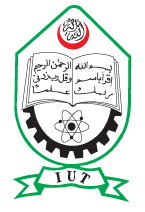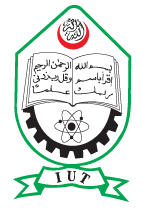High Temperature Processes (HTP) Research Group
Research ClustersHigh Temperature Processes (HTP) Research GroupSmart Machining and Green EngineeringApplied Mechanics, Vibration and AcousticsApplied Machine Learning (AML)Industrial Engineering and Management (IEM)Applied Thermal EngineeringRenewable Energy LabEnergy and Environmental Simulation LabInternational ResearchStructural and functional composite materials
High Temperature Processes (HTP) Research Group
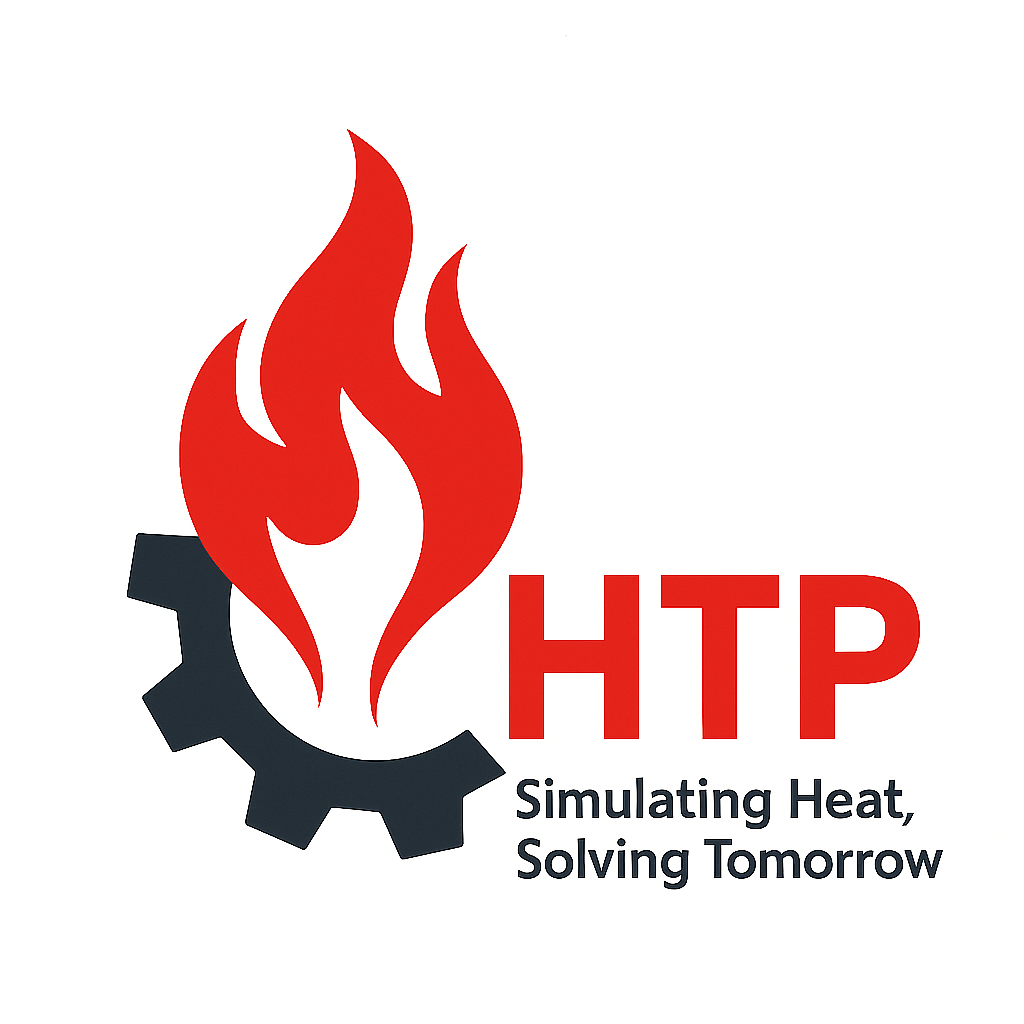 The High Temperature Processes (HTP) Research Group at the Department of Mechanical and Production Engineering (MPE), Islamic University of Technology (IUT), conducts advanced research in the broad fields of Combustion, Applied Heat Transfer, and Thermal Engineering. Our research is driven by a strong foundation in Computational Fluid Dynamics (CFD), with extensive modeling and simulation experience in real-world energy systems and industrial processes. The group actively develops sustainable and clean energy technologies through rigorous simulation and analysis.
The High Temperature Processes (HTP) Research Group at the Department of Mechanical and Production Engineering (MPE), Islamic University of Technology (IUT), conducts advanced research in the broad fields of Combustion, Applied Heat Transfer, and Thermal Engineering. Our research is driven by a strong foundation in Computational Fluid Dynamics (CFD), with extensive modeling and simulation experience in real-world energy systems and industrial processes. The group actively develops sustainable and clean energy technologies through rigorous simulation and analysis.
Why Join HTP?
• Global Impact Research: Contribute to industrial-scale solutions in combustion, thermal energy storage, solar harvesting, and sustainable heat processes.
• Guidance from Leading Scholars: Work under acclaimed researchers active in peer-reviewed publications, international conferences, and impactful project work.
• Collaborative & Supportive Environment: Engage in interdisciplinary teamwork across MPE, IEE, and research bodies within and outside IUT.
• Career & Academic Growth: Secure institutional support for publishing, funding, and networking with global research partners.
Main Research Fields
Combustion & Thermo-Chemistry
Simulation of clean and efficient combustion systems, Chemical reaction kinetics and equilibrium modeling, Emission reduction and alternative fuel combustion strategies
Multiphase Flow & Fluid-Thermal Sciences
Modeling of gas-liquid-solid interactions in industrial environments, Computational fluid dynamics (CFD) applications for thermal systems, Heat and mass transfer in high-temperature processes
Clean Energy & CO₂ Capture
CO₂ separation using post-combustion and oxy-fuel techniques, Chemical looping combustion for energy generation and carbon mitigation, Integration of CO₂ capture into energy and manufacturing systems
Renewable Energy & Alternative Fuels
Thermo-chemical production of biofuels, hydrogen, and syngas, Simulation of biomass gasification and fuel reforming processes, Experimental biodiesel-based electricity generation project, Hydrogen fuel cell-based energy system modeling
Industrial High-Temperature Systems
Steel-making and metallurgical process simulation, Process optimization in energy-intensive industries, thermal efficiency and waste heat recovery modeling
Our Capabilities
Our research is primarily simulation-based and powered by state-of-the-art tools that allow us to conduct high-fidelity modeling across thermal, fluid, and chemical process domains. Our major tools are:
• ANSYS CFX V20 • ANSYS Fluent V20 • AVL FIRE 2017 • OpenFOAM
Meet Our Team
Our researchers bring extensive expertise in combustion modeling, thermal system analysis, and simulation of sustainable energy processes.

Prof. Dr Arafat Ahmed Bhuiyan possesses extensive numerical expertise in computational fluid dynamics (CFD), focusing on combustion, heat transfer, and energy systems. His research employs advanced CFD simulations to analyze complex thermal-fluid phenomena in various engineering applications. Dr. Bhuiyan has developed CFD models to simulate the co-combustion of biomass and coal under oxy-fuel conditions, assessing the effects of radiative and convective heat transfer on burnout and emission characteristics. He has conducted numerical investigations into the thermal and hydraulic performance of finned-tube heat exchangers, evaluating the impact of various flow regimes and design modifications on heat transfer efficiency. Dr. Bhuiyan's work includes simulating the heat transfer and frictional properties of nanofluids in helical heat exchangers, incorporating factors like coil geometry and ribbed tube arrangements to enhance thermal performance. His research extends to the numerical modeling of renewable energy systems, focusing on the integration of alternative fuels and CO₂ capture technologies to improve energy efficiency and sustainability. Through these endeavors, Prof. Dr. Bhuiyan contributes significantly to the advancement of numerical methods in thermal and energy engineering, providing valuable insights for optimizing system designs and improving performance.
 Prof. Dr. Md. Rezwanul Karim possesses extensive numerical expertise in computational fluid dynamics (CFD), applied thermal engineering, and solid fuel combustion. His research employs advanced CFD simulations to investigate complex fluid flow, heat transfer, and combustion phenomena in various energy and industrial systems. Dr. Karim has developed numerical models to simulate fluidized bed combustion and solid fuel behavior, focusing on improving combustion efficiency and reducing emissions. He conducts numerical studies on heat transfer mechanisms in thermal systems, including solar thermal collectors and industrial furnaces, to optimize thermal performance. Dr. Karim’s research involves numerical modeling of solar thermal power plants and energy systems, evaluating techno-economic feasibility and system integration. He applies multi-physics simulation techniques such as molecular dynamics and micro-fluidics modeling to explore advanced material properties and fluid behavior. Through these contributions, Prof. Dr. Karim advances numerical methods in thermal and energy engineering, supporting sustainable energy development and improved industrial process efficiency.
Prof. Dr. Md. Rezwanul Karim possesses extensive numerical expertise in computational fluid dynamics (CFD), applied thermal engineering, and solid fuel combustion. His research employs advanced CFD simulations to investigate complex fluid flow, heat transfer, and combustion phenomena in various energy and industrial systems. Dr. Karim has developed numerical models to simulate fluidized bed combustion and solid fuel behavior, focusing on improving combustion efficiency and reducing emissions. He conducts numerical studies on heat transfer mechanisms in thermal systems, including solar thermal collectors and industrial furnaces, to optimize thermal performance. Dr. Karim’s research involves numerical modeling of solar thermal power plants and energy systems, evaluating techno-economic feasibility and system integration. He applies multi-physics simulation techniques such as molecular dynamics and micro-fluidics modeling to explore advanced material properties and fluid behavior. Through these contributions, Prof. Dr. Karim advances numerical methods in thermal and energy engineering, supporting sustainable energy development and improved industrial process efficiency.
Our Young Researchers
Our researchers bring extensive expertise in combustion modeling, thermal system analysis, and simulation of sustainable energy processes.
 Jahid Hasan akash, currently pursuing his PhD in Auburn University, Alabama in USA
Jahid Hasan akash, currently pursuing his PhD in Auburn University, Alabama in USA Mr.Farzad Hossain, currently pursuing his PhD in Edith Cowan University, Perth, Australia
Mr.Farzad Hossain, currently pursuing his PhD in Edith Cowan University, Perth, Australia Mr. Mahmudul Firoz, a PhD candidate currently working on LCA on coal based power plant
Mr. Mahmudul Firoz, a PhD candidate currently working on LCA on coal based power plant  Navid Inan, a M Sc Engg candidate currently working on Biomass combustion modelling
Navid Inan, a M Sc Engg candidate currently working on Biomass combustion modelling Mr. XXXXXX, a M Sc Engg candidate currently working on Biomass combustion modelling
Mr. XXXXXX, a M Sc Engg candidate currently working on Biomass combustion modelling Mr. XXXXXX, a M Sc Engg candidate currently working on Biomass combustion modelling
Mr. XXXXXX, a M Sc Engg candidate currently working on Biomass combustion modelling Mr. XXXXXX, a M Sc Engg candidate currently working on Biomass combustion modelling
Mr. XXXXXX, a M Sc Engg candidate currently working on Biomass combustion modelling Mr. XXXXXX, a M Sc Engg candidate currently working on Biomass combustion modelling
Mr. XXXXXX, a M Sc Engg candidate currently working on Biomass combustion modelling Mr. XXXXXX, a M Sc Engg candidate currently working on Biomass combustion modelling
Mr. XXXXXX, a M Sc Engg candidate currently working on Biomass combustion modelling Mr. XXXXXX, a M Sc Engg candidate currently working on Biomass combustion modelling
Mr. XXXXXX, a M Sc Engg candidate currently working on Biomass combustion modelling Mr. XXXXXX, a M Sc Engg candidate currently working on Biomass combustion modelling
Mr. XXXXXX, a M Sc Engg candidate currently working on Biomass combustion modelling Mr. XXXXXX, a M Sc Engg candidate currently working on Biomass combustion modelling
Mr. XXXXXX, a M Sc Engg candidate currently working on Biomass combustion modelling Mr. XXXXXX, a M Sc Engg candidate currently working on Biomass combustion modelling
Mr. XXXXXX, a M Sc Engg candidate currently working on Biomass combustion modelling Mr. XXXXXX, a M Sc Engg candidate currently working on Biomass combustion modelling
Mr. XXXXXX, a M Sc Engg candidate currently working on Biomass combustion modelling
Upcoming projects
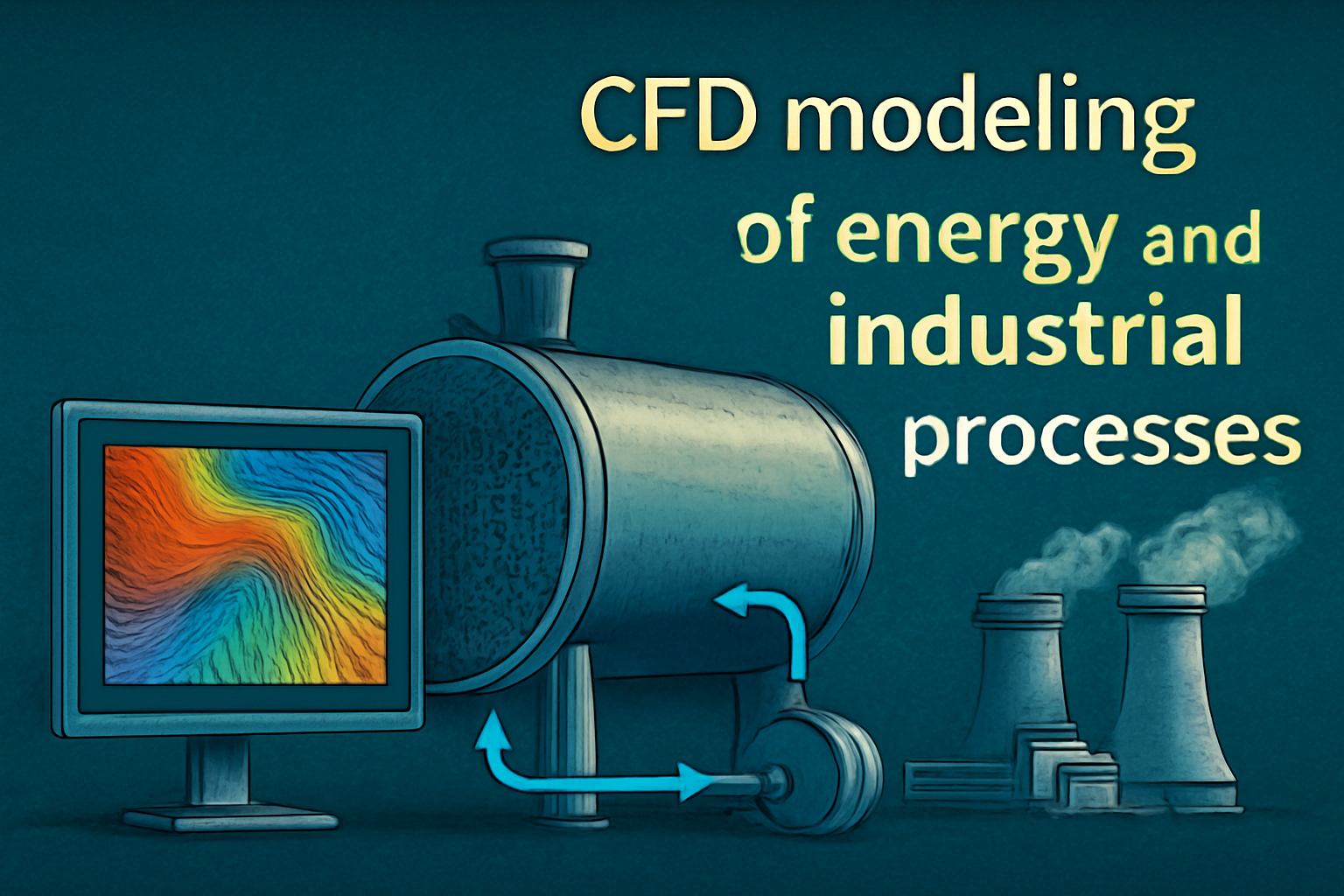 CFD modeling of energy and industrial processes
CFD modeling of energy and industrial processes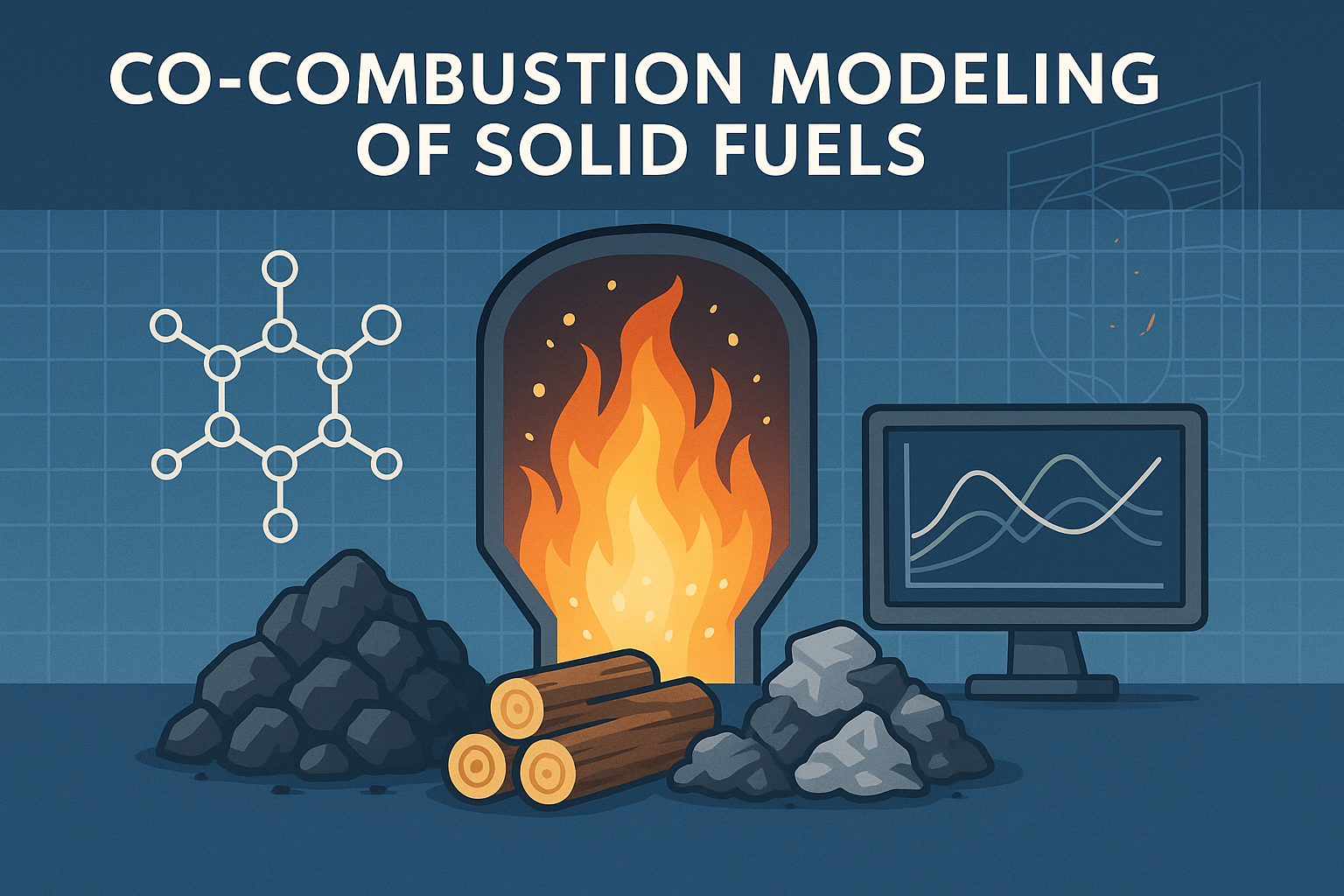 Co-combustion modeling of solid fuels (biomass, waste)
Co-combustion modeling of solid fuels (biomass, waste) 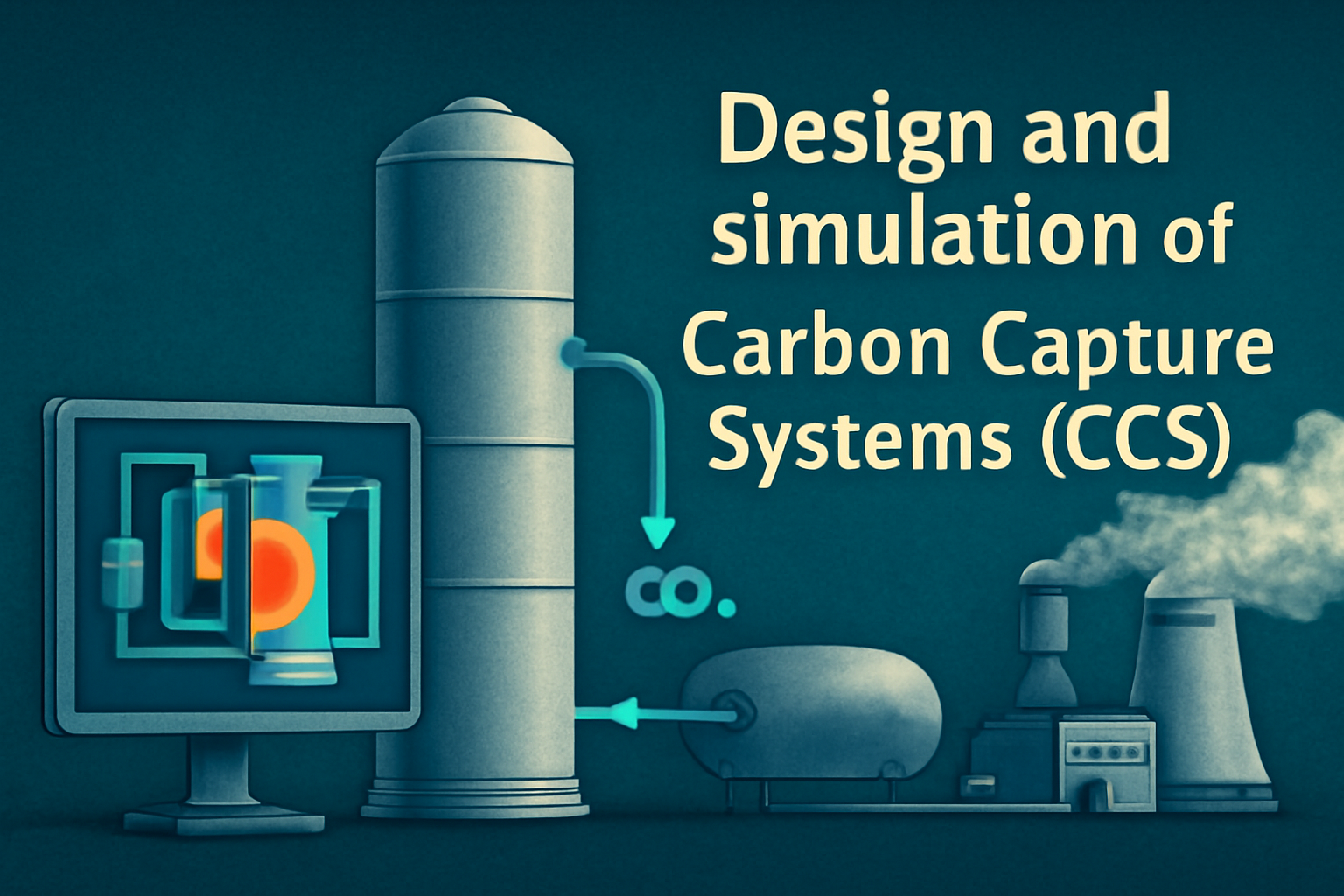 Design and simulation of Carbon Capture Systems (CCS)
Design and simulation of Carbon Capture Systems (CCS)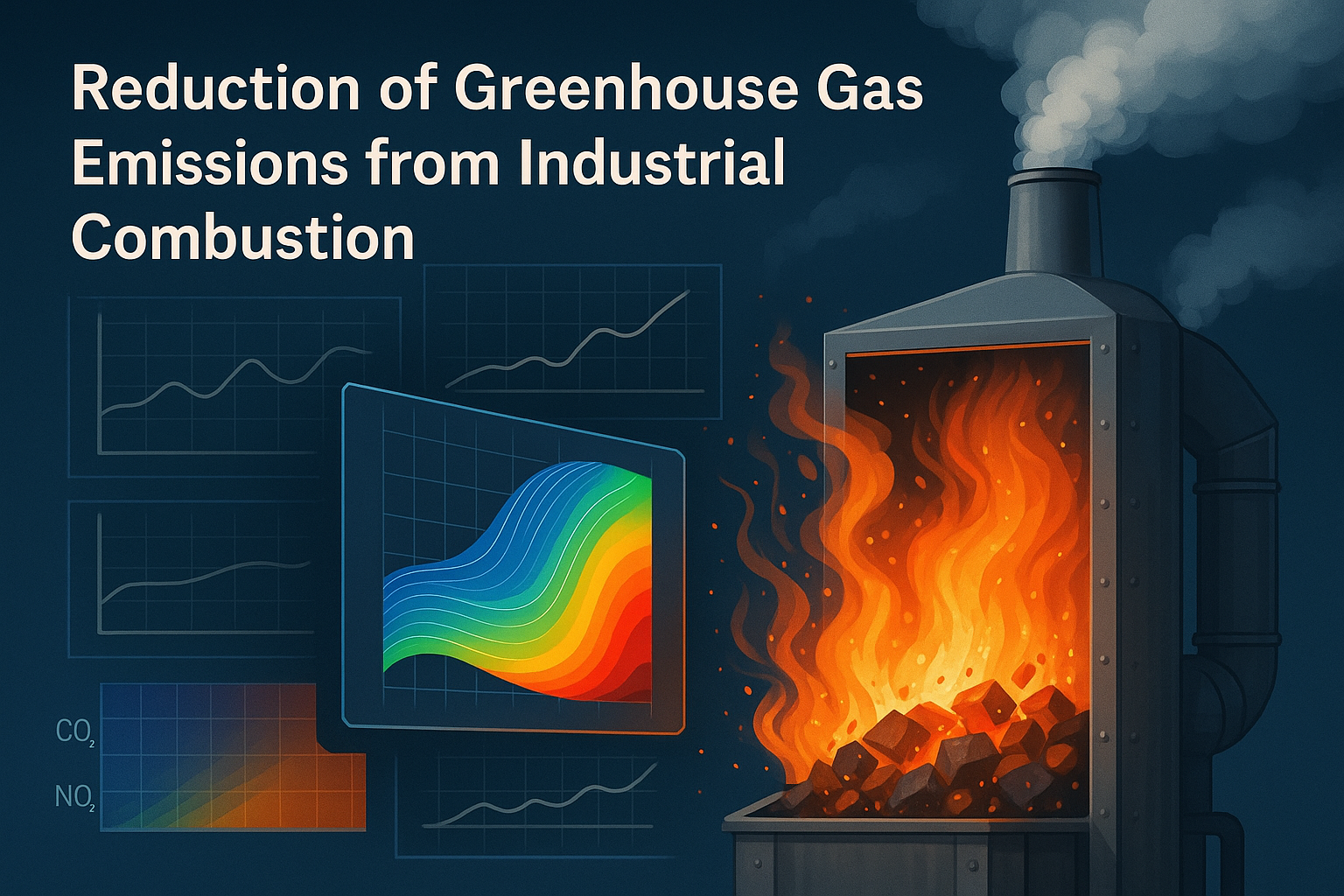 Reduction of GHGs from industrial combustion
Reduction of GHGs from industrial combustion
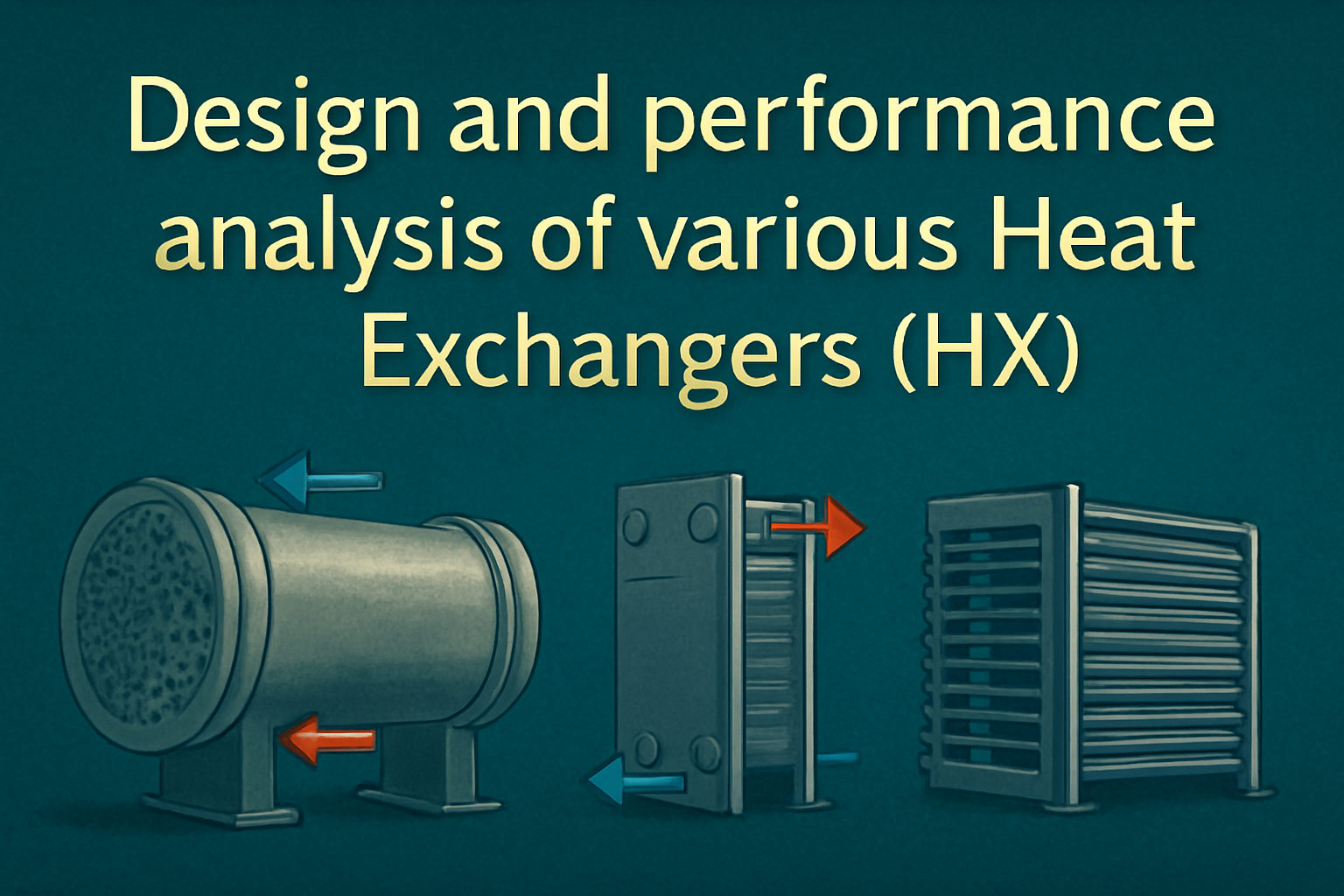 Design and performance analysis of various Heat Exchangers
Design and performance analysis of various Heat Exchangers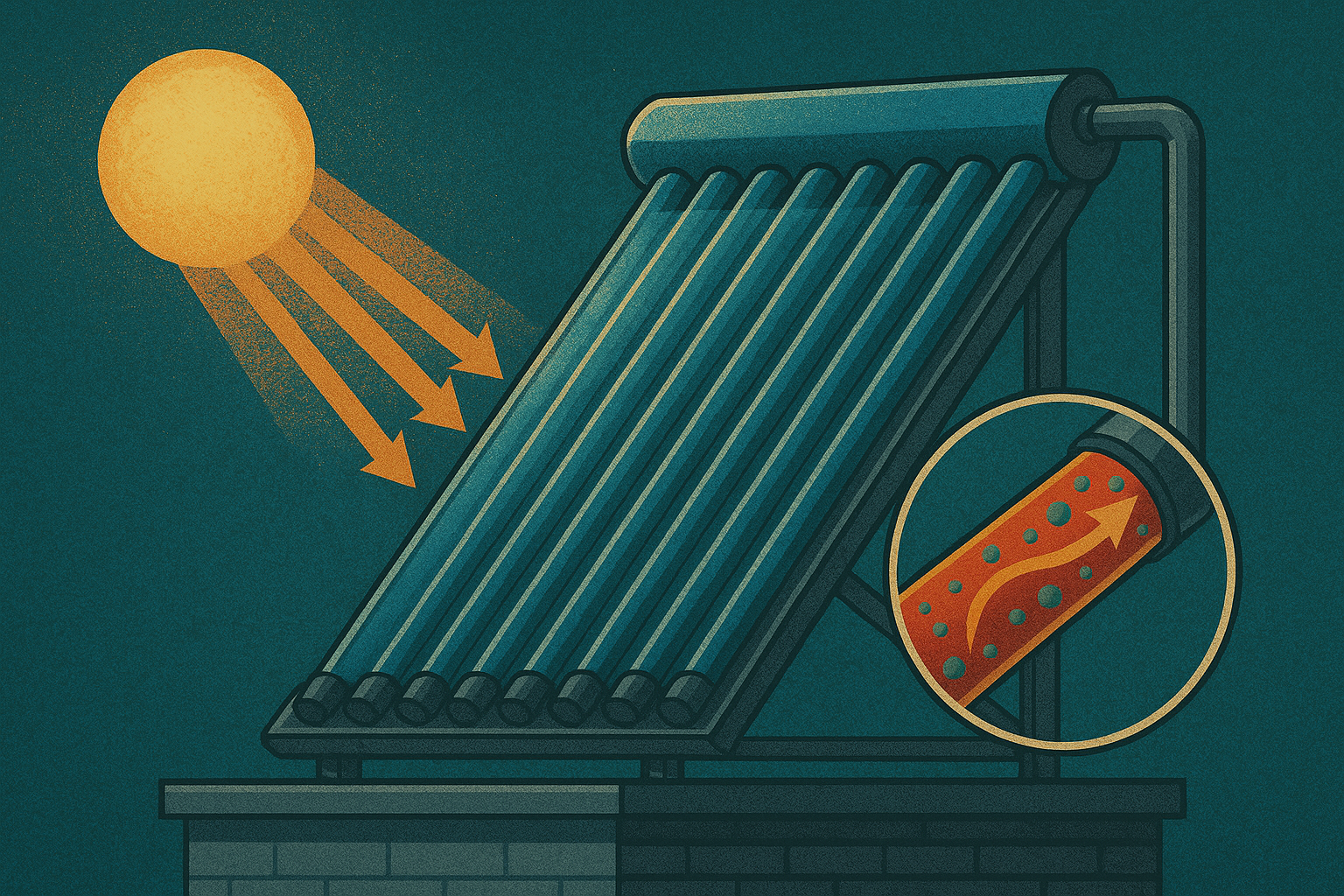 Modeling and analysis of solar thermal collectors
Modeling and analysis of solar thermal collectors 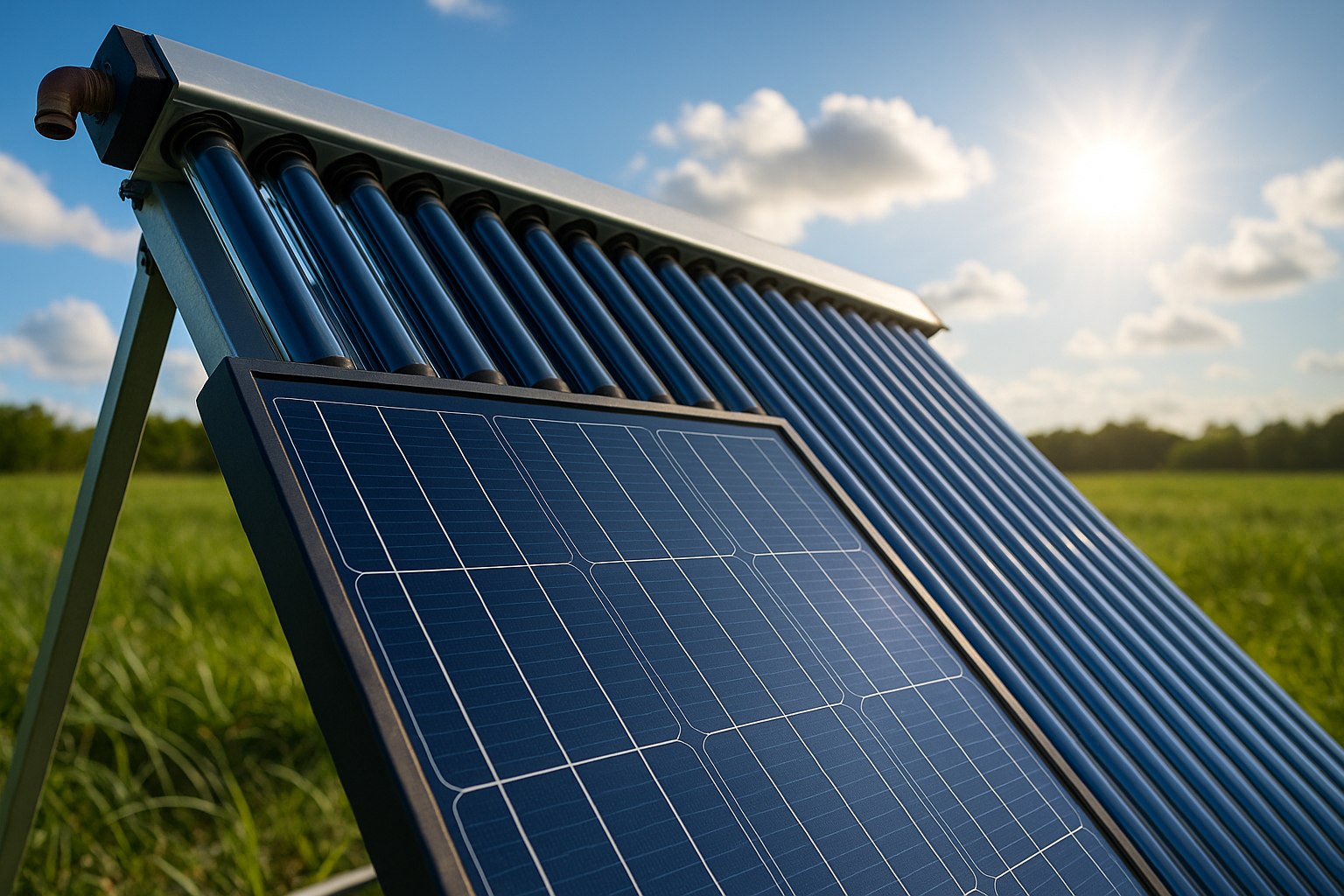 Development of hybrid PVT solar collectors
Development of hybrid PVT solar collectors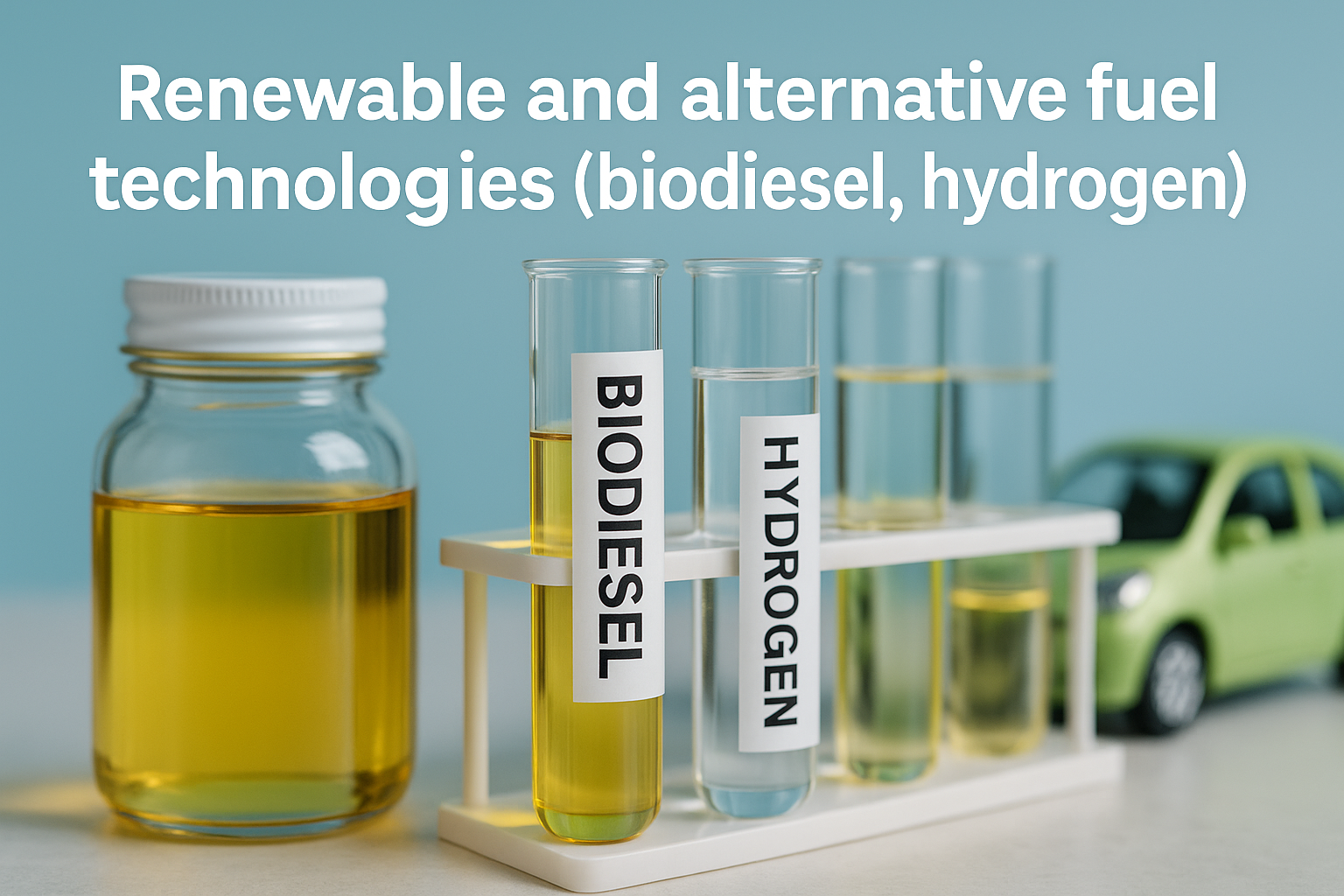
Recent Publications
Our group has contributed to several high-impact journals and conferences. A full list of recent publications can be found in our Publications section.
--Enhancement of Heat Transfer Using Elliptical Twisted Inner Pipe with Convergent Conical Ring Turbulator for Turbulent Flow in Double Pipe Heat Exchanger, International Journal of Thermal Sciences, Volume 210, April 2025, 109558, https://doi.org/10.1016/j.ijthermalsci.2024.109558
--Effect of triangular pits on the mechanical behavior of 2D MoTe2: a molecular dynamics study, Journal of Molecular Modeling, Volume 30, article number 391, 2024. https://doi.org/10.1007/s00894-024-06180-z
--Energy potential of biomass from rice husks in bangladesh: An experimental study for thermochemical and physical characterization, Energy Reports, Volume 11, June 2024, Pages 3450-3460. https://doi.org/10.1016/j.egyr.2024.03.019
--The impact of tube bundle layout on the thermal and fluidic behaviour of liquid lead–bismuth eutectic in a helical-coiled once-through steam generator, Heliyon, Volume 10, Issue 2, 30 January 2024, e24149. https://doi.org/10.1016/j.heliyon.2024.e24149
--A CFD modelling for optimizing geometry parameters for improved performance using clean energy geothermal ground-to-air tunnel heat exchangers, Case Studies in Thermal Engineering, Article Number:103867 (2024). https://doi.org/10.1016/j.csite.2023.103867
--Optimizing radiation performance of plasma-based hybrid bioconvective nanofluids integrated Magneto-hydrodynamic (MHD) micropump for tertiary level radiative oncology, Scientific Reports, vol 13, Article number: 18452 (2023). https://doi.org/10.21203/rs.3.rs-3210642/v1
--Enhancing energy harvesting performance of a flat plate solar collector through integrated carbon-based and metal-based nanofluids, Results in Engineering, In Press, Journal Pre-proof, 101276, 2023. https://doi.org/10.1016/j.rineng.2023.101276
--Thermo-hydrodynamic characteristics and entropy generation in a tube heat exchanger using multiple head ribbed geometries, South African Journal of Chemical Engineering, In Press, Journal Pre-proof, 2023. https://doi.org/10.1016/j.sajce.2023.06.009
--Thermochemical pretreatments to improve the fuel properties of rice husk: A review, Journal of Renewable Energy, Vol. 215, 118917, 2023. https://doi.org/10.1016/j.renene.2023.118917
--Prediction of carbon capture and sequestration (CCS) technology in a 125 MW tangentially coal-fired subcritical thermal power plant for retrofitting in Bangladesh, Results in Engineering, In Press, Journal Pre-Proof, 101159, 2023. https://doi.org/10.1016/j.rineng.2023.101159
--Numerical Investigation for Mitigation of Cavitation in High-Speed Marine Propeller Using Mass Injection Approach, Iranian Journal of Science and Technology, Transactions of Mechanical Engineering, Pages 1-17, 2023. https://doi.org/10.1007/s40997-023-00636-y
--Numerical study of turbulent flow and heat transfer in a novel design of serpentine channel coupled with D-shaped jaggedness using hybrid nanofluid, Alexandria Engineering Journal, Volume 68, Pages 647-663, 1 April 2023. https://doi.org/10.1016/j.aej.2023.01.061
--Investigation of thermal performance and entropy generation in a helical heat exchanger with multiple rib profiles using Al2O3-water nanofluid, Case studies in Thermal Engineering, Volume 40, Pages , 2022. https://doi.org/10.1016/j.csite.2022.102514
--Geometrical and coil revolution effects on the performance enhancement of a helical heat exchanger using nanofluids, Case studies in Thermal Engineering, Volume 35, Pages , 2022. https://doi.org/10.1016/j.csite.2022.102106
--A finite element analysis approach to design and optimize the static structural impact on a skateboard, Materials Today: Proceedings, Volume, Pages, April 2022. https://doi.org/10.1016/j.matpr.2022.02.424
--A review on recent advancements of the usage of nano fluid in hybrid photovoltaic/thermal (PV/T) solar systems, International Journal of Renewable Energy, Volume 188, Pages 114-131, April 2022. https://doi.org/10.1016/j.renene.2022.01.116
--Adverse environmental impacts of wind farm installations and alternative research pathways to their mitigation, International Journal of Cleaner Engineering and Technology, Volume 7, 100415, April 2022. https://doi.org/10.1016/j.clet.2022.100415
--Improvement of an exhaust gas recirculation cooler using discrete ribbed and perforated louvered strip vortex generator, International Journal of Thermofluids, Volume 13, 100132, February 2022. https://doi.org/10.1016/j.ijft.2022.100132
--Synthesis, heat transport mechanisms and thermophysical properties of nanofluids: A critical overview, International Journal of Thermofluids, pp. 100086, 2021/05/09/, 2021. https://doi.org/10.1016/j.ijft.2021.100086
--The impact of D-shaped jaggedness on heat transfer enhancement technique using Al2O3 based nanoparticles, International Journal of Thermofluids, pp. 100069, 2021/02/09/, 2021. https://doi.org/10.1016/j.ijft.2021.100069
--Heat transfer and pressure drop performance of Nanofluid: A state-of- the-art review, International Journal of Thermofluids, pp. 100065, 2021/01/16/, 2021. https://doi.org/10.1016/j.ijft.2021.100065
--Comparative analysis of refrigerant performance between LPG and R134a under subtropical climate. Journal of Thermal Analysis and Calorimetry, 139(4), pp 2925-2935, (2020). https://doi.org/10.1007/s10973-019-09126-3
--Computational Assessment of Nano-Particulate (Al2O3/Water) Utilization for Enhancement of Heat Transfer with varying straight section lengths in a Serpentine Tube Heat Exchanger, Thermal Science and Engineering Progress, Volume 20, Article 100521, 2020. https://doi.org/10.1016/j.tsep.2020.100521
--CFD simulation of biomass thermal conversion under air/oxy-fuel conditions in a reciprocating grate boiler, International Journal of Renewable Energy, vol. 146: p. 1416-1428, 2020. https://doi.org/10.1016/j.renene.2019.07.068
Collaboration & Opportunities
The HTP Research Group actively encourages:
• Undergraduate and postgraduate students to pursue research in high-temperature and sustainable energy technologies
• Academic researchers interested in collaborative projects
• Industrial partners seeking technical expertise in thermal systems, combustion, and process optimization
We are open to national and international collaboration and welcome proposals from dedicated candidates and organizations.
Get Involved
If you’re passionate about simulation-based research in energy and environmental technologies, we invite you to contact us. Join our team to help shape the future of clean energy and high-efficiency industrial systems.

Why Join HTP?
• Global Impact Research: Contribute to industrial-scale solutions in combustion, thermal energy storage, solar harvesting, and sustainable heat processes.
• Guidance from Leading Scholars: Work under acclaimed researchers active in peer-reviewed publications, international conferences, and impactful project work.
• Collaborative & Supportive Environment: Engage in interdisciplinary teamwork across MPE, IEE, and research bodies within and outside IUT.
• Career & Academic Growth: Secure institutional support for publishing, funding, and networking with global research partners.
Main Research Fields
Combustion & Thermo-Chemistry
Simulation of clean and efficient combustion systems, Chemical reaction kinetics and equilibrium modeling, Emission reduction and alternative fuel combustion strategies
Multiphase Flow & Fluid-Thermal Sciences
Modeling of gas-liquid-solid interactions in industrial environments, Computational fluid dynamics (CFD) applications for thermal systems, Heat and mass transfer in high-temperature processes
Clean Energy & CO₂ Capture
CO₂ separation using post-combustion and oxy-fuel techniques, Chemical looping combustion for energy generation and carbon mitigation, Integration of CO₂ capture into energy and manufacturing systems
Renewable Energy & Alternative Fuels
Thermo-chemical production of biofuels, hydrogen, and syngas, Simulation of biomass gasification and fuel reforming processes, Experimental biodiesel-based electricity generation project, Hydrogen fuel cell-based energy system modeling
Industrial High-Temperature Systems
Steel-making and metallurgical process simulation, Process optimization in energy-intensive industries, thermal efficiency and waste heat recovery modeling
Our Capabilities
Our research is primarily simulation-based and powered by state-of-the-art tools that allow us to conduct high-fidelity modeling across thermal, fluid, and chemical process domains. Our major tools are:
• ANSYS CFX V20 • ANSYS Fluent V20 • AVL FIRE 2017 • OpenFOAM
Meet Our Team
Our researchers bring extensive expertise in combustion modeling, thermal system analysis, and simulation of sustainable energy processes.

Prof. Dr Arafat Ahmed Bhuiyan possesses extensive numerical expertise in computational fluid dynamics (CFD), focusing on combustion, heat transfer, and energy systems. His research employs advanced CFD simulations to analyze complex thermal-fluid phenomena in various engineering applications. Dr. Bhuiyan has developed CFD models to simulate the co-combustion of biomass and coal under oxy-fuel conditions, assessing the effects of radiative and convective heat transfer on burnout and emission characteristics. He has conducted numerical investigations into the thermal and hydraulic performance of finned-tube heat exchangers, evaluating the impact of various flow regimes and design modifications on heat transfer efficiency. Dr. Bhuiyan's work includes simulating the heat transfer and frictional properties of nanofluids in helical heat exchangers, incorporating factors like coil geometry and ribbed tube arrangements to enhance thermal performance. His research extends to the numerical modeling of renewable energy systems, focusing on the integration of alternative fuels and CO₂ capture technologies to improve energy efficiency and sustainability. Through these endeavors, Prof. Dr. Bhuiyan contributes significantly to the advancement of numerical methods in thermal and energy engineering, providing valuable insights for optimizing system designs and improving performance.

Our Young Researchers
Our researchers bring extensive expertise in combustion modeling, thermal system analysis, and simulation of sustainable energy processes.
 Jahid Hasan akash, currently pursuing his PhD in Auburn University, Alabama in USA
Jahid Hasan akash, currently pursuing his PhD in Auburn University, Alabama in USA Mr.Farzad Hossain, currently pursuing his PhD in Edith Cowan University, Perth, Australia
Mr.Farzad Hossain, currently pursuing his PhD in Edith Cowan University, Perth, Australia Mr. Mahmudul Firoz, a PhD candidate currently working on LCA on coal based power plant
Mr. Mahmudul Firoz, a PhD candidate currently working on LCA on coal based power plant  Navid Inan, a M Sc Engg candidate currently working on Biomass combustion modelling
Navid Inan, a M Sc Engg candidate currently working on Biomass combustion modelling Mr. XXXXXX, a M Sc Engg candidate currently working on Biomass combustion modelling
Mr. XXXXXX, a M Sc Engg candidate currently working on Biomass combustion modelling Mr. XXXXXX, a M Sc Engg candidate currently working on Biomass combustion modelling
Mr. XXXXXX, a M Sc Engg candidate currently working on Biomass combustion modelling Mr. XXXXXX, a M Sc Engg candidate currently working on Biomass combustion modelling
Mr. XXXXXX, a M Sc Engg candidate currently working on Biomass combustion modelling Mr. XXXXXX, a M Sc Engg candidate currently working on Biomass combustion modelling
Mr. XXXXXX, a M Sc Engg candidate currently working on Biomass combustion modelling Mr. XXXXXX, a M Sc Engg candidate currently working on Biomass combustion modelling
Mr. XXXXXX, a M Sc Engg candidate currently working on Biomass combustion modelling Mr. XXXXXX, a M Sc Engg candidate currently working on Biomass combustion modelling
Mr. XXXXXX, a M Sc Engg candidate currently working on Biomass combustion modelling Mr. XXXXXX, a M Sc Engg candidate currently working on Biomass combustion modelling
Mr. XXXXXX, a M Sc Engg candidate currently working on Biomass combustion modelling Mr. XXXXXX, a M Sc Engg candidate currently working on Biomass combustion modelling
Mr. XXXXXX, a M Sc Engg candidate currently working on Biomass combustion modelling Mr. XXXXXX, a M Sc Engg candidate currently working on Biomass combustion modelling
Mr. XXXXXX, a M Sc Engg candidate currently working on Biomass combustion modelling Mr. XXXXXX, a M Sc Engg candidate currently working on Biomass combustion modelling
Mr. XXXXXX, a M Sc Engg candidate currently working on Biomass combustion modellingUpcoming projects
 CFD modeling of energy and industrial processes
CFD modeling of energy and industrial processes Co-combustion modeling of solid fuels (biomass, waste)
Co-combustion modeling of solid fuels (biomass, waste)  Design and simulation of Carbon Capture Systems (CCS)
Design and simulation of Carbon Capture Systems (CCS) Reduction of GHGs from industrial combustion
Reduction of GHGs from industrial combustion
 Design and performance analysis of various Heat Exchangers
Design and performance analysis of various Heat Exchangers Modeling and analysis of solar thermal collectors
Modeling and analysis of solar thermal collectors Development of hybrid PVT solar collectors
Development of hybrid PVT solar collectors
Experimental biodiesel-based electricity generation
Recent Publications
Our group has contributed to several high-impact journals and conferences. A full list of recent publications can be found in our Publications section.
--Enhancement of Heat Transfer Using Elliptical Twisted Inner Pipe with Convergent Conical Ring Turbulator for Turbulent Flow in Double Pipe Heat Exchanger, International Journal of Thermal Sciences, Volume 210, April 2025, 109558, https://doi.org/10.1016/j.ijthermalsci.2024.109558
--Effect of triangular pits on the mechanical behavior of 2D MoTe2: a molecular dynamics study, Journal of Molecular Modeling, Volume 30, article number 391, 2024. https://doi.org/10.1007/s00894-024-06180-z
--Energy potential of biomass from rice husks in bangladesh: An experimental study for thermochemical and physical characterization, Energy Reports, Volume 11, June 2024, Pages 3450-3460. https://doi.org/10.1016/j.egyr.2024.03.019
--The impact of tube bundle layout on the thermal and fluidic behaviour of liquid lead–bismuth eutectic in a helical-coiled once-through steam generator, Heliyon, Volume 10, Issue 2, 30 January 2024, e24149. https://doi.org/10.1016/j.heliyon.2024.e24149
--A CFD modelling for optimizing geometry parameters for improved performance using clean energy geothermal ground-to-air tunnel heat exchangers, Case Studies in Thermal Engineering, Article Number:103867 (2024). https://doi.org/10.1016/j.csite.2023.103867
--Optimizing radiation performance of plasma-based hybrid bioconvective nanofluids integrated Magneto-hydrodynamic (MHD) micropump for tertiary level radiative oncology, Scientific Reports, vol 13, Article number: 18452 (2023). https://doi.org/10.21203/rs.3.rs-3210642/v1
--Enhancing energy harvesting performance of a flat plate solar collector through integrated carbon-based and metal-based nanofluids, Results in Engineering, In Press, Journal Pre-proof, 101276, 2023. https://doi.org/10.1016/j.rineng.2023.101276
--Thermo-hydrodynamic characteristics and entropy generation in a tube heat exchanger using multiple head ribbed geometries, South African Journal of Chemical Engineering, In Press, Journal Pre-proof, 2023. https://doi.org/10.1016/j.sajce.2023.06.009
--Thermochemical pretreatments to improve the fuel properties of rice husk: A review, Journal of Renewable Energy, Vol. 215, 118917, 2023. https://doi.org/10.1016/j.renene.2023.118917
--Prediction of carbon capture and sequestration (CCS) technology in a 125 MW tangentially coal-fired subcritical thermal power plant for retrofitting in Bangladesh, Results in Engineering, In Press, Journal Pre-Proof, 101159, 2023. https://doi.org/10.1016/j.rineng.2023.101159
--Numerical Investigation for Mitigation of Cavitation in High-Speed Marine Propeller Using Mass Injection Approach, Iranian Journal of Science and Technology, Transactions of Mechanical Engineering, Pages 1-17, 2023. https://doi.org/10.1007/s40997-023-00636-y
--Numerical study of turbulent flow and heat transfer in a novel design of serpentine channel coupled with D-shaped jaggedness using hybrid nanofluid, Alexandria Engineering Journal, Volume 68, Pages 647-663, 1 April 2023. https://doi.org/10.1016/j.aej.2023.01.061
--Investigation of thermal performance and entropy generation in a helical heat exchanger with multiple rib profiles using Al2O3-water nanofluid, Case studies in Thermal Engineering, Volume 40, Pages , 2022. https://doi.org/10.1016/j.csite.2022.102514
--Geometrical and coil revolution effects on the performance enhancement of a helical heat exchanger using nanofluids, Case studies in Thermal Engineering, Volume 35, Pages , 2022. https://doi.org/10.1016/j.csite.2022.102106
--A finite element analysis approach to design and optimize the static structural impact on a skateboard, Materials Today: Proceedings, Volume, Pages, April 2022. https://doi.org/10.1016/j.matpr.2022.02.424
--A review on recent advancements of the usage of nano fluid in hybrid photovoltaic/thermal (PV/T) solar systems, International Journal of Renewable Energy, Volume 188, Pages 114-131, April 2022. https://doi.org/10.1016/j.renene.2022.01.116
--Adverse environmental impacts of wind farm installations and alternative research pathways to their mitigation, International Journal of Cleaner Engineering and Technology, Volume 7, 100415, April 2022. https://doi.org/10.1016/j.clet.2022.100415
--Improvement of an exhaust gas recirculation cooler using discrete ribbed and perforated louvered strip vortex generator, International Journal of Thermofluids, Volume 13, 100132, February 2022. https://doi.org/10.1016/j.ijft.2022.100132
--Synthesis, heat transport mechanisms and thermophysical properties of nanofluids: A critical overview, International Journal of Thermofluids, pp. 100086, 2021/05/09/, 2021. https://doi.org/10.1016/j.ijft.2021.100086
--The impact of D-shaped jaggedness on heat transfer enhancement technique using Al2O3 based nanoparticles, International Journal of Thermofluids, pp. 100069, 2021/02/09/, 2021. https://doi.org/10.1016/j.ijft.2021.100069
--Heat transfer and pressure drop performance of Nanofluid: A state-of- the-art review, International Journal of Thermofluids, pp. 100065, 2021/01/16/, 2021. https://doi.org/10.1016/j.ijft.2021.100065
--Comparative analysis of refrigerant performance between LPG and R134a under subtropical climate. Journal of Thermal Analysis and Calorimetry, 139(4), pp 2925-2935, (2020). https://doi.org/10.1007/s10973-019-09126-3
--Computational Assessment of Nano-Particulate (Al2O3/Water) Utilization for Enhancement of Heat Transfer with varying straight section lengths in a Serpentine Tube Heat Exchanger, Thermal Science and Engineering Progress, Volume 20, Article 100521, 2020. https://doi.org/10.1016/j.tsep.2020.100521
--CFD simulation of biomass thermal conversion under air/oxy-fuel conditions in a reciprocating grate boiler, International Journal of Renewable Energy, vol. 146: p. 1416-1428, 2020. https://doi.org/10.1016/j.renene.2019.07.068
Collaboration & Opportunities
The HTP Research Group actively encourages:
• Undergraduate and postgraduate students to pursue research in high-temperature and sustainable energy technologies
• Academic researchers interested in collaborative projects
• Industrial partners seeking technical expertise in thermal systems, combustion, and process optimization
We are open to national and international collaboration and welcome proposals from dedicated candidates and organizations.
Get Involved
If you’re passionate about simulation-based research in energy and environmental technologies, we invite you to contact us. Join our team to help shape the future of clean energy and high-efficiency industrial systems.
